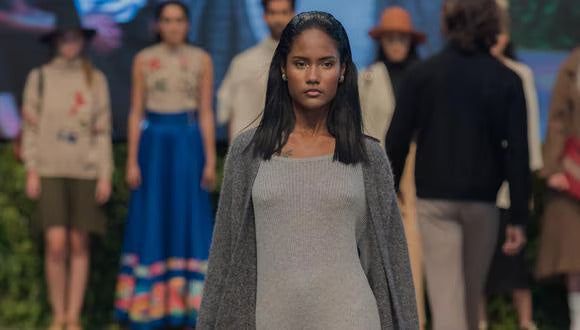
Seven sustainable fashion brands will represent Peru at the 2019 Latin America Green Awards.
The Sustainable Fashion Association of Peru (AMSP) will be present at the international event that exhibits, connects and rewards the 500 best social and environmental initiatives in the region. (Diffusion)
The Peruvian fashion industry continues to score points in the regional market. This time, the Association of Sustainable Fashion of Peru (AMSP) will present seven local firms with sustainable DNA at the Latin America Green Awards 2019, in Guayaquil
During the event, which rewards the 500 best social and environmental initiatives in the region, those attending the 2019 Latin America Green Awards, including potential buyers, will be able to appreciate the pieces designed by the brands Insecta, Estrafalario, Khana, Galera, Qaytu , Las Polleras de Agus and Sophie Ottaner.
The brands will be presented on August 22 during the participation of the Sustainable Fashion Association of Peru (AMSP), which will hold a discussion on sustainable fashion, in which they will discuss the importance of creating an organization that brings together sustainable fashion companies in Peru and how this model can be replicated in the region.
It is important to highlight that, during the 2018 edition of the Latin America Green Awards, the 'Evea Ecofashion' brand won the award for the best Latin American company in the 'Responsible Production and Consumption' category. This is thanks to their work with the Asháninka indigenous communities of Puerto Bermúdez and the communities of Iberia in the Madre de Dios region, from whom they buy shiringa sheets for the production of their footwear.
It is important to note that, during the 2018 edition of the Latin American Green Awards, the brand 'Evea Ecofashion' won the award for the best Latin American company in the 'Responsible Production and Consumption' category. This was thanks to its work with indigenous Asháninka communities in Puerto Bermúdez and the communities of Iberia in the Madre de Dios region, from whom they buy the shiringa sheets for the production of their footwear.
